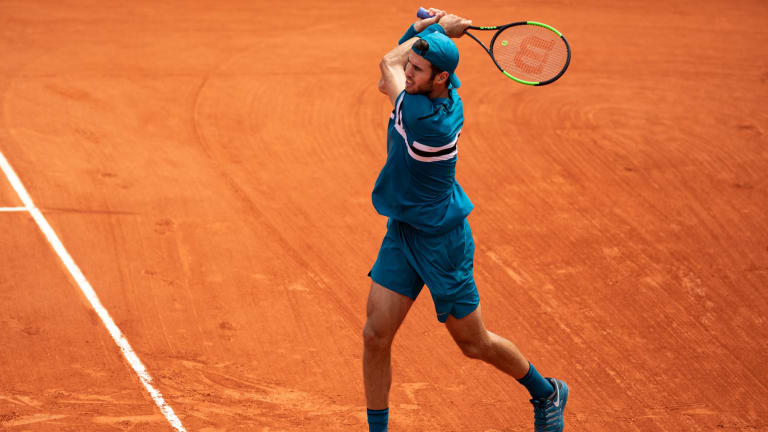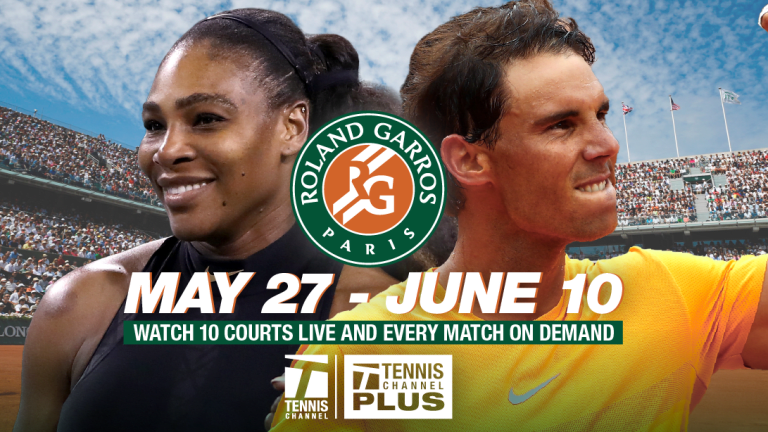PARIS—Alexander Zverev kept burying shots into the net and spinning around to stare up at his player box. The look on his face was one of utter stupefaction: How is this happening again?
It was all happening again for Zverev as he fell behind two sets to one against Karen Khachanov in Court Suzanne Lenglen on Sunday: The slow start, the defensive play, the inability to harness any momentum or make anything come easily. The biggest mystery coming into the 2018 French Open—what’s wrong with Zverev at the majors?—only seemed to be deepening. The last person who had an answer was Zverev himself.
Yet when it came to this fourth-round match, there was a very simple reason that it wasn’t going Zverev’s way. Through the first three sets and into the fourth, Khachanov was the better player. The Russian hit harder, he played farther up in the court, he took more risks and reaped the rewards. By comparison, the German was ranging deep behind the baseline and sending up spinny, loopy forehands that were waiting to be pounded. When it came to that all-important stat—points won on second serves—Khachanov was the guy who was able to back his up. Even after sneaking his way through the second-set tiebreaker to level the match at a set all, Zverev’s game quickly went south again in the third.

